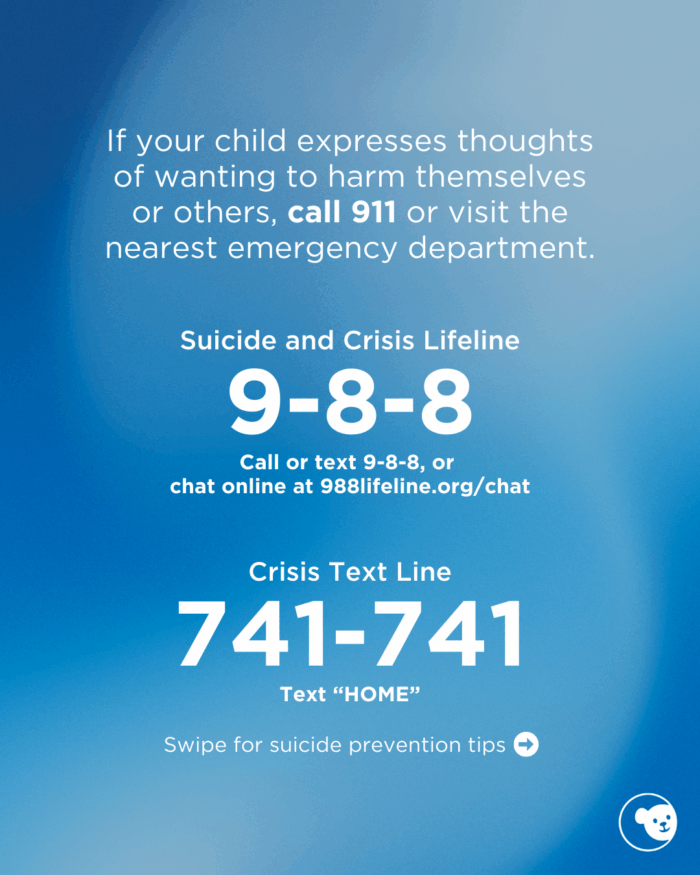Mental health treatment and services provided can vary depending on your child’s symptoms, behaviors and needs. Below are some ways to determine if your child’s symptoms and behavior warrant seeking mental health treatment and the various types of services you can access.
What are the different types of mental health services available to my child/teen?
There are several types of mental health services that teens and children can access. The types of services available to a child or teen depend on that child/teen’s symptoms, behaviors and needs.
Here are some of the most common mental health services accessed by children and teens:
- Outpatient mental health services – this type of therapy is offered at a provider’s office and can include individual, family, and couple’s therapy. This therapy typically addresses mental health conditions that are mild to moderate in symptom severity. Outpatient therapy can be provided weekly, bi-weekly or monthly depending on the child/teen’s need.
- Group therapy – here, the child or teen meets with other children/teens that may be experiencing similar mental health symptoms to discuss their mental health condition(s) and find ways to cope with or to improve the symptoms. The group is typically led by one or more mental health providers that can guide the group discussions and interventions for the children/teens. The group typically meets at a provider’s office, or agency that provides mental health resources.
- Intensive Outpatient Programs (IOP) – are intensive treatment programs used to address higher need mental health conditions/symptoms such as depression, suicidal ideation/past suicide attempts, eating disorders, or substance use that do not require detoxification or round-the-clock supervision. This type of treatment may require that your child attend daily or almost daily therapy services. Whereas residential treatment requires that clients reside on site, clients in intensive outpatient programs live at home.
- Partial Hospitalization Programs (PHP) – A Partial Hospitalization Program is a structured mental health treatment program that typically serves patients who are experiencing more severe mental health symptoms such as suicidal ideation, self-harm and/or past attempts to commit suicide. These programs usually run for several hours each day, three to five days per week. The child or teen participates in the scheduled treatment sessions during the day and returns home at night. These types of programs are a step down from 24-hour care in a psychiatric hospital setting (inpatient treatment). Partial Hospitalization Programs can also be used to prevent the need for an inpatient hospital stay.
- Mental Health Inpatient Services – Inpatient mental health services typically occur in a clinic or hospital setting. A patient receiving inpatient services will stay in the clinic or hospital to receive intensive mental health services, such as individual, family and group therapy to help the patient address his/her/their mental health symptoms. Typically, inpatient services will be provided to patients who are experiencing severe mental health symptoms such as self-harm, recent suicide attempt, persistent suicidal or homicidal ideation. Typically, once the patient’s severe symptoms have been addressed and the patient is able to cope with the mental health symptoms, the patient will be referred to step-down mental health services, such as a Partial Hospitalization Program.
Crisis Resources
If your child expresses thoughts of wanting to harm themselves or others, call 9-1-1 or visit the nearest emergency department.
988 Suicide and Crisis Lifeline:
Call 9-8-8
Text any message to 9-8-8
Chat online at 988lifeline.org/chat
Crisis Text Line:
Text “HOME” to 741741
Save for later
Download, print or share on social media.

Learn more about CHOC’s pediatric mental health services
At CHOC, we specialize in providing a full spectrum of pediatric mental healthcare, including inpatient, intensive outpatient and outpatient program services.





